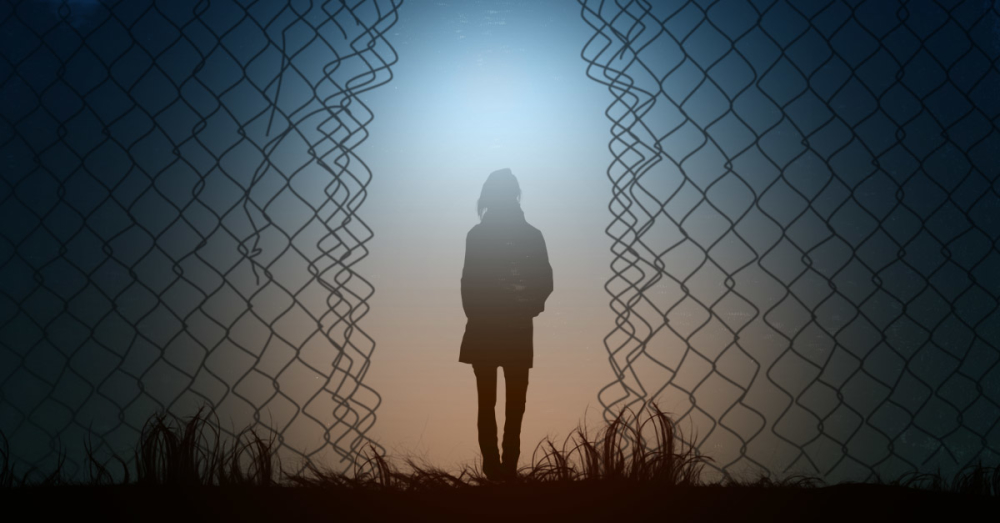Incarceration Nations: Author Searches World for Path to True Prison Reform

By now, many Americans are aware that our brutal system of mass incarceration is out of control and ineffective. But acknowledging the problem is only the first step. Many reasonable people can recognize that the current prison system is barbaric, but wonder what the alternatives are. Turns out, there are plenty. And new indie authors like Baz Dreisinger are shining a light not only on the problem, but on possible solutions. Dreisinger’s Incarceration Nations: A Journey to Justice in Prisons Around the World will be released in February, and it’s an incredible journey of a book that shows possible paths out of the mess and the mockery the United States has made of criminal justice.
Before I discuss that book, here’s a little background on how I “became radicalized,” as it were, to the notion that the system needs to be ripped apart and rebuilt from the ground up.
For decades, I worked in newsrooms where crime coverage was a spectator sport, and the game was all about catching the “bad guys” and locking them up. I saw nothing wrong with this. That is, until my eyes were opened about eight years ago, after I worked for a time at a local TV station in Detroit, where the idea was also to find the most ridiculous, gory, or salacious crimes and mock the criminals as mercilessly as possible. I quickly discovered what happens after the “guilty” verdict, after cameras are turned off, reporters go home, and public interest wanes.
The convicted—mostly the poor and African Americans, the mentally ill and the drug addicted—are forced into a system of perpetual abuse, torture, assault, and rape. And the biggest outrage caused by this scam we call the US criminal justice system is that the barbarism makes us no safer. In fact, it causes more crime by traumatizing its captives and causing collateral damage in devastated families and communities.
The outrage I felt after witnessing these things can potentially last a lifetime. Fortunately, early this year, my eyes were opened a second time by Maya Schenwar, who wrote Locked Down, Locked Out: Why Prison Doesn’t Work and How We Can Do Better. I talked to her back in January and wrote this. In Schenwar’s book, I read for the first time phrases like “restorative justice” and “transformative justice.” I was skeptical at first, since these things focus on making both parties—the victim and the victimized—face one another as human beings and come to some sense of closure between them. Doesn’t that let the criminal off the hook? Possibly. But what are we interested in? Do we want to perpetuate, in Dreisinger’s words, “a wretched chain of wrongdoing?” Or do we want to keep communities and families whole and make sure productive, creative members of society are not wasting away the decades in solitary confinement?
Like me, Dreisinger grew up with Hungarian Jewish survivors of the Holocaust whose bitterness against the genocidal murderers was a part of everyday life even decades afterward. I know this feeling well. You feel traumatized by proxy. I feel it every time I hear about a nonagenarian former concentration camp guard who has been caught. I don’t care how old he is. Let him rot the rest of his life.
This is why I was astonished at Dreisinger’s first port of call on her nine-country tour of prisons chronicled in her book: Rwanda. For them, the genocide is fresh.The perpetrators are still alive and middle aged. But imprisoning an entire ethnic group is not sustainable. So, in Rwanda, they have a system whereby the perpetrators of mass murder can be officially forgiven, perform some sort of reparation duty (building roads, etc.) and then be welcomed back into their communities.
In America, the focus is on punishment of perpetrators. End of story. Yet punishment is backward-looking, and nations like Rwanda need to look forward. If not, it could potentially spiral back into a never-ending cycle of revenge and counter-revenge. Rwanda has chosen the road forward, the road to survival. I can imagine how difficult this must be for some, to see the killers of their parents free and walking around. Yet who says that the cycle of revenge is all there is to human nature?
In all the countries Dreisinger visited, the successful prison-reform programs were the ones that focused not on the victimizer, but the victim; not on punishment, but forgiveness.
In Australia, which has a problem, like we do, of disproportionately locking up its minority citizens, Dreisinger found some hope in the Wandoo Reintegration facility, a minimum security prison for males age eighteen to twenty-four. In America, they’d be tossed into the general prison population to be victimized and traumatized. In Wandoo, they are “residents” with rights. The focus is on preparing them for release, providing them with life-skills training and education.
In her beautifully written, and in many ways heartbreaking, chapter on her experiences with women prisoners in Thailand, Dresinger sees theater performances by inmates. They try to practice what are known as Bangkok Rules initiated by the country’s princess, which recognize the specific needs of women. It is not until she meets the princess for herself that she realizes that the true “performance” was Dreisinger’s entire visit there. The enlightened prison was a kind of show put on for the author’s benefit. Yet, it was a performance of what reality can be if the country wants it. It took Thailand’s equivalent of “white privilege”—in this case royalty—to get the nation to pay attention.
Dreisinger decribes the hell-on-earth prisons of Jamaica and Uganda, whose only saving graces are art and music programs. But even those frustrated her. They were “certainly well-meaning efforts but they’re also crumbs tossed at a system starved for radical overhaul.”
The successful programs she found were the ones that were about lifting the burden of resentment between victim and victimizer. It’s about the state making these conversations between the two parties possible rather than simply filling up the prisons and throwing people away. Once you look at it this way, it’s an attractive alternative to a system that solves one crime with another crime perpetrated by the state, itself.
In the United States, the conversation must move beyond simply pointing out injustices. That only causes a retrenchment on both sides and perpetuates slogans. Dreisinger’s book demonstrates possible solutions through the eyes of those brave enough to try them.
The main takeaway from Incarceration Nations is that nobody has the answer. Everybody, though, has a piece of the answer. The United States pioneered a horrible idea—mass incarceration and the supermax—and exported it, inflicted it upon the world. Maybe we can learn from the world bits and pieces of what is working and import it, make it our own. The alternative is status quo, which is unacceptable in a civilized society.

Howard Lovy is executive editor at Foreword Reviews. You can follow him on Twitter @Howard_Lovy
Howard Lovy
